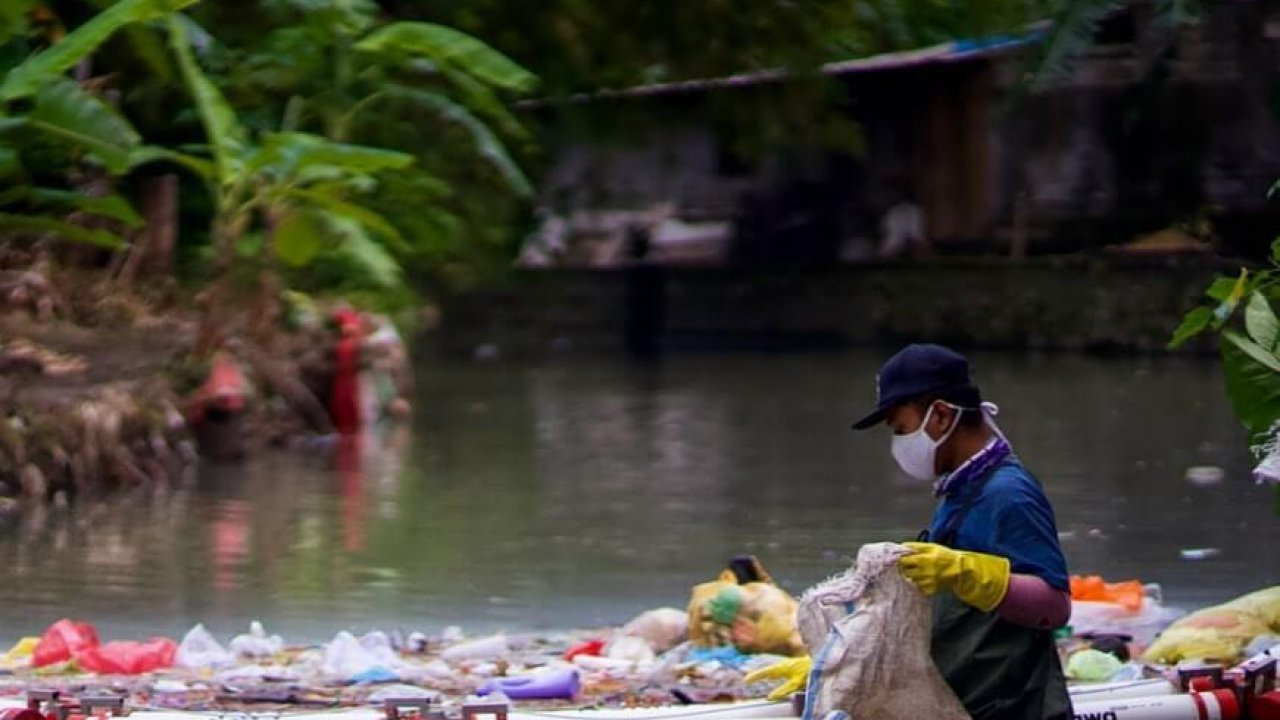
Gary Bencheghib and his siblings are on a mission to clean all rivers in Indonesia. They founded Sungai Watch, a foundation that places barriers in rivers to collect plastics. In two years time the team grew from a few volunteers to over 60 full-time employees. So far they collected over 700,000 kilos of plastics, while restoring the rivers of Bali, the connection point between life on land and the ocean.
The plastic warrior from Bali
Gary’s activism started at the age of 14. Together with his siblings, Kelly and Sam, he went on weekly coastal cleanups across Bali. They founded Sungai Watch to expand their activism and increase the results. Their aim is to restore all rivers in Indonesia, starting in Bali. Today, they collect about two tons (2,000 kg!) of plastic from rivers every single day. For his impact, Gary got awarded Ramon Magsaysay was president of the Philippines from 1953 until his death in 1957. An award carrying his name was established by the trustees of the Rockefeller Brothers Fund after Magsaysay's death. The award is Asia's premier prize and highest honor and is seen as the Asian Nobel Prize. It celebrates greatness of spirit and transformative leadership. https://www.rmaward.asia/ for emergent leadership. ‘The Asian Nobel Prize’ praises Gary’s creative and youthful effort in which he involves the community while promoting education.
700,000+ kg of plastics waste collected
400,000+ kg of organic waste collected
173 barriers installed in over 90 rivers
300+ community cleanups organized
The village model
Because of monsoon storms a lot of plastic ends up in nature. But especially because households and factories use the rivers as garbage dumps, the rivers in Bali are among the most polluted rivers in the world. Sungai Watch is piloting the so-called ‘village model’, Sam Bencheghib explains:
“We build a facility; install 15 to 30 barriers in the rivers and hire people from the village. We want to educate locals in order to make the village self-sustaining after fully cleaning its rivers.”
Clean rivers and putting plastics to good use
Millions of Indonesian people depend on rivers for fish and drinking water. Thanks to the cleaning Sungai Watch did together with the local communities, they see the fish population coming back. Gary: “we also don’t see any more plastics and that is like the best thing in the world.”
The tons of plastics that Sungai collects from the rivers get recycled. They take the collected plastic waste to the facilities; sort it and think of a way to put it to good use. They turn plastic bags into fibers from which they make panels to use as interiors. In the future, they hope to come up with a Sungai Watch furniture catalogue with items they can sell to fund back the operation.
Governments and companies need to take responsibility and reduce single-use plastic waste. However, as an individual we can all do our bit too. Here you find a practical guide on how you can contribute positively.
Support Sungai Watch
You can support Sungai Watch by sponsoring a barrier or cleanup, but you can also just donate. Your support will allow Sungai Watch to fund their cleanup operations around Indonesia by organizing more river, mangrove and illegal landfill cleanups. The funds will entirely go towards the project.